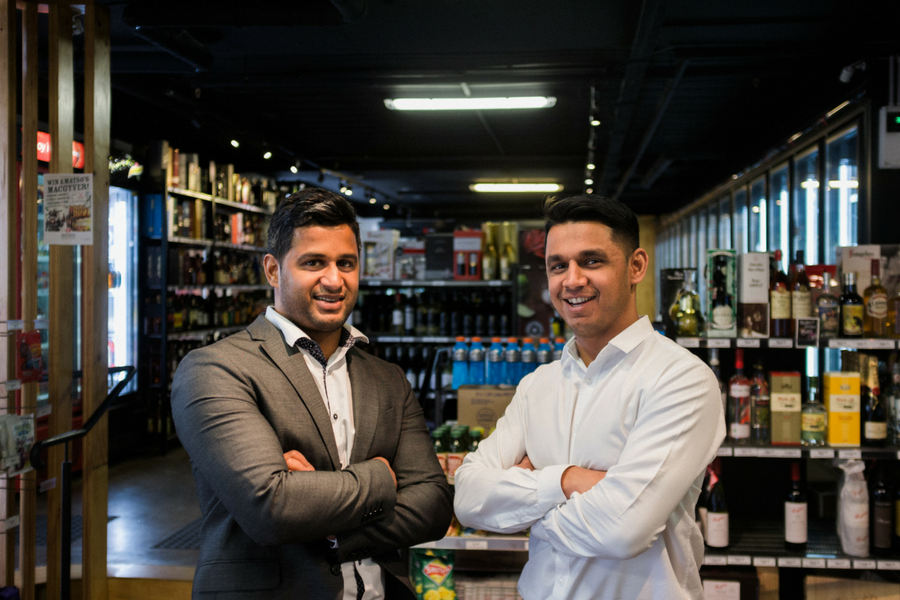Technology has stepped up to the mantle to fuel our weekly (or daily) thirst for a fix of alcohol, with a multitude of startups creating services to deliver a favourite six pack on-demand.
Among these businesses are QuickBottle, a platform delivering alcohol to doorsteps within a certain area, and Jimmy Brings, which delivers everything from lemonade to red wine around inner Sydney.
Meanwhile, for end of week drinks, Brisbane startup Friday Beers delivers a selection craft beers and ciders for $28.80, while online platforms like BeerBud and Vinomofo curate our alcohol choices and deliver to our door.
As the list of alcohol-focused startups continue to grow, it would seem that just about every avenue of the alcohol-related services space has been explored, which is why Melbourne-based alcohol delivery service Tipple is looking to leverage data to boost its offering to customers, whilealso creating an additional revenue stream.
Backing Tipple’s delivery app is a machine learning algorithm, which accumulates customer information to help inform the service.
As Tipple’s cofounder Ryan Barrington explained, the focus on data and leveraging technology is what separates the platform from its competition, including bricks-and-mortar ‘mum and pop’ bottle shops.
“People often say we’re an alcohol retailer. In my mind, this has always been wrong. Fundamentally we’re a digital technology company. We actively use information to make real time decisions instantly and our systems are designed to take multiple sources of data and extrapolate the best possible outcome in real time,” he said.
“This means that for everything from customers ordering on our app, to picking and packing and delivering the orders, our staff have tools which are constantly feeding recommendations on the most efficient routes, times, and processes to ensure we are performing in an optimal way.”
Capturing this information also lets the startup build a complete profile of customer behaviour, closing the knowledge gap to understand what motivates to buy a customer to buy and when they buy, combined with general information such as age and location demographics.
Beside informing Tipple’s internal decisions, this data can also become available for alcohol suppliers on the platform to help gain insight into their own customers.
“We get a lot of interest from suppliers wanting to access our data, so that they can make more informed decisions about their products. For example, with the emerging craft beer market, suppliers are wanting to know where they should concentrate their supply and marketing efforts,” said Barrington.
“Based on purchasing trends, we can identify trends in each suburb and ultimately know where the demand lies. This is new data, so the market is only now learning its value and how it can be used.”
A former bottle shop owner, Barrington saw first hand the evolution of the home delivery industry, and became interested in looking at how to apply technology to speed up alcohol delivery – a service which was still new at the time.
Bootstrapping his idea, Barrington partnered with his brother Shane Barrington to kickstart Tipple.
Tipple started off delivering to suburbs around the Melbourne CBD, before pushing the service to Sydney’s inner city suburbs; however, the startup avoids the buzzing delivery service hotspot of the CBD.
With over 1,000 products on the platform, users are able to choose from a wide range of alcohol, from spirits to craft beers.
Using Braintree as a payment gateway, Tipple charges a flat delivery fee of $7, with delivery riders operating between the hours of 12pm to 11pm. Each rider has a RSA certificate, and must ask for a customer’s ID upon arrival at the delivery location before the products are handed over.
Similar to contemporary delivery platforms, Tipple users are kept up to date about their delivery, and told when to expect the order to arrive. Customers can also pick the time they want the alcohol to be delivered, allowing them to pre-order a few hours ahead, or on another day.
“We also deliver drinks cold, so they’re ready to drink as soon as they arrive. Unlike others who are new to the space, we don’t place restrictions on the quantity of alcohol as we can deliver via vans as well as scooters,” added Barrington.
With a focus on leveraging data to improve the platform, Barrington said the startup will be looking into how to use data and technology to provide a “safer and more responsible” drinking experience for its customers.
“New features include face or ID recognition to save time when the driver drops off the alcohol. We’re also wanting to expand our offering to all of Sydney and Melbourne, and just to continue to grow to dominate the market.”
Image: Shane & Ryan Barrington. Source: Supplied.




















Trending
Daily startup news and insights, delivered to your inbox.